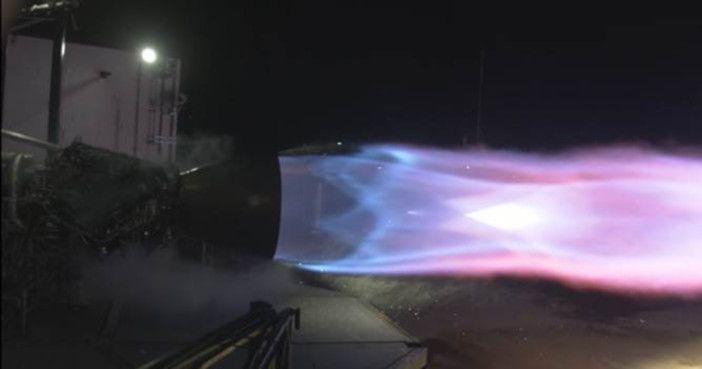Engineers at SpaceX have carried out a full-power test of a methane-fuelled full-flow staged combustion cycle engine for the first time.
The Raptor engine, which is fuelled by methane and liquid oxygen, instead of the hydrogen and liquid oxygen mix used in most rockets, is panned to be used by the company’s Super Heavy and Starship reusable rocket and spacecraft system which will transport crews and cargo to the Moon and Mars.
Elon Musk announced the milestone test results for the Raptor in a series of tweets posted from February 7:
Raptor reached 268.9 bar today, exceeding prior record held by the awesome Russian RD-180. Great work by @SpaceX engine/test team! pic.twitter.com/yPrvO0JhyY
— Elon Musk (@elonmusk) February 11, 2019
The first test of the Raptor engine was conducted in September 2016. Three of the engines are built into its Starship Hopper prototype vehicle, which is being developed in Texas.
As well as being fuelled by methane, the Raptor is a full-flow staged combustion cycle engine.
FFSC engines have a twin-shaft staged combustion cycle that uses both oxidizer-rich and fuel-rich preburners, enabling the full flow of both propellants through the turbines
There have been two earlier attempts at creating a FFSC rocket motor. The Soviet RD-270 engine developed during the 1960s, mentioned by Musk in his tweet, and the Integrated Powerhead Demonstrator engine which was developed by Aerojet and Rocketdyne in the late 1990s and early 2000s.




